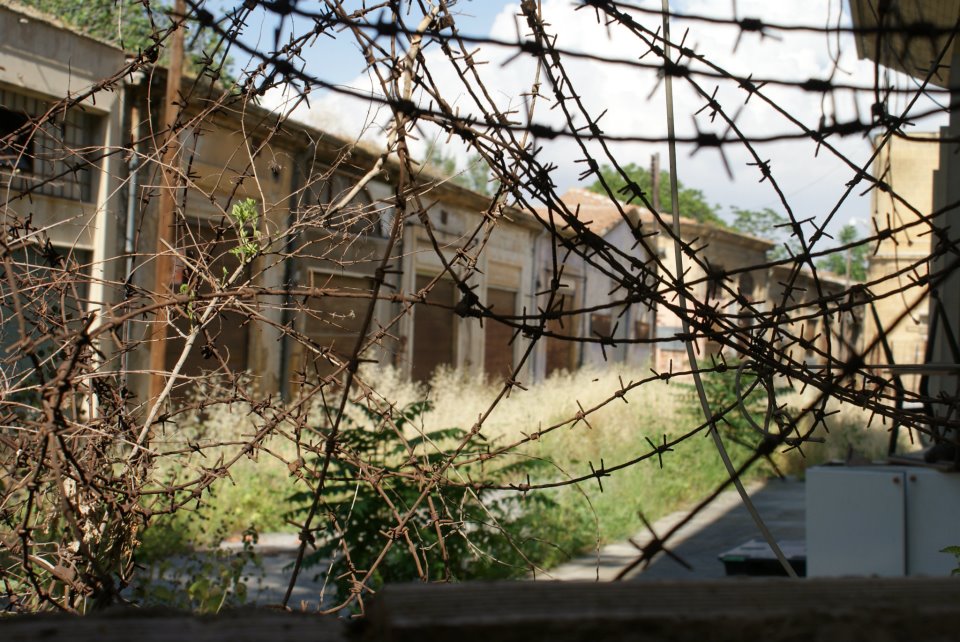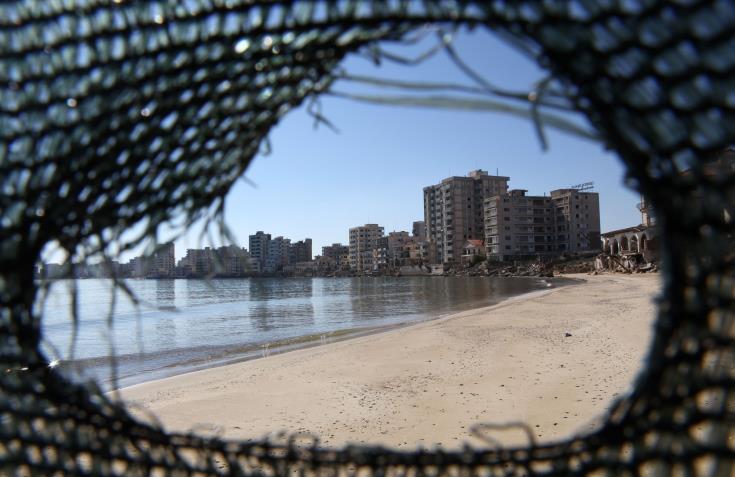
Interview with Stefanos Stefanou, AKEL Political Bureau member
Sunday 6th December 2020, HARAVGI newspaper
“The President should be in favor of resuming negotiations in the way Mr. Guterres says”
Given the behavior of Turkey and Erdogan, do you think the UN Secretary General’s effort, which begins with Mrs. Lute’s arrival, will yield results?
SS: What the UN Secretary General considers is at stake is the resumption of negotiations on the agreed basis of bi-communal, bi-zonal federation with political equality and from the point where they were interrupted at Crans Montana on the basis of the Framework submitted by Mr. Guterres and the safeguarding of the convergences achieved so far. The UN Secretary General’s Special envoy on Cyprus Mrs. Lute will apparently sound out the involved parties about their intentions. We do not know whether Mrs. Lute’s effort will be successful. This will depend on the content of the positions her interlocutors will put forth.
Do you think that the Greek Cypriot side has convinced the UN Secretary General that it is seeking the resumption of talks from where they had remained at Crans Montana?
SS: If the Greek Cypriot side had convinced the Secretary General, more than three years wouldn’t have gone by without a negotiation procedure. The Greek Cypriot side will convince the UN Secretary General if it clearly, without any ambiguities and preconditions, accepts the resumption of negotiations from the point they were interrupted and in the way that Mr. Guterres is asking.
It is a fact that during these three and a half years of a negotiating gap, Mr. Anastasiades failed to convince the Secretary General that he is ready to proceed with the negotiations. This is not our own arbitrary conclusion. The Secretary General points this out in his repeated Reports he has submitted. Mr. Anastasiades was not convincing, because at the same time as he was declaring that he was ready for the resumption of negotiations, he proposed “new ideas”, which annulled important convergences that were agreed which the UN Secretary General wants to safeguard.
The President of the Republic’s contradictions and mutual cancelling outs undermined his credibility vis-a-vis the Secretary General, but also more broadly in the eyes of the international community. We hope now that we are at the last critical point of the Cyprus problem, that the President acts differently, that he takes a very clear and specific position in favor of the resumption of negotiations in the way that Mr. Guterres is asking. Only then will he convince.
What is the minimum result you expect from the five-party conference and what is the maximum?
SS: What is undesirable is that the continuation of negotiations would not be agreed upon due to the different perceptions of the involved parties on how the negotiation should proceed. The maximum result would be that the resumption of the negotiations would be decided, as the UN Secretary General suggests. Let’s hope it is the second.
Will the possible submission of a proposal by the Turkish and Turkish Cypriot sides for a two-state solution destroy everything or will it force the Greek Cypriot side into a discussion on new ideas?
SS: No one can force us to move from our positions when these are in line with the decisions of the UN. The agreed basis for the solution, namely bi-communal, bi-zonal federation with political equality as described in the relevant resolutions of the International Organization, has been adopted in a series of resolutions and constitutes the official position of the UN. The International Organization will not move from its official positions unless the two sides ask for it. Even if the Turkish side insists on another basis for a solution, the UN will persist on the solution of bi-zonal, bi-communal federation, so long as we (i.e. the Greek Cypriot side) are consistent and steadfast in our positions.
In that event, the most probable development would be that we will not have a resumption of negotiations, but this will leave the Turkish side exposed and it will be the one assigned the responsibility for the continuation of the deadlock. This development will certainly not be pleasing, but it is of great importance for handling the day after and for addressing Turkey’s attempts to create new fait accompli.
Centralized or decentralized federation and why?
SS: The government should have asked itself this question when it started the negotiation so that we should know how many and what competences we would assert for the federal government. It is the competences that determine whether federation is decentralized or not. The issue of competences has essentially been agreed upon in the negotiations. The President of the Republic wrongly decided afterwards to open this issue as well and, indeed, without ever clarifying which of these agreed competences he is ready to concede to the constituent entities. There are competences that if they were to be conceded, we will not have a federation, but instead confederation which means two separate states.
Is political equality, according to the resolutions of the UN Security Council, finally agreed or are they negotiable?
SS: The content of political equality is indeed determined by a series of resolutions of the UN. Political equality means, among other things, effective participation in the institutions and decisions of the central government. In the many years of discussion on the issue, what effective participation precisely means was specified and, in fact, until the Crans Montana conference, it was essentially agreed. This fact is pointed out by the UN Secretary General himself in the Report he submitted in September 2017. So political equality is agreed and if the President of the Republic genuinely wants the continuation of the negotiations, then he must accept what has been agreed and not continue to open the issue.




